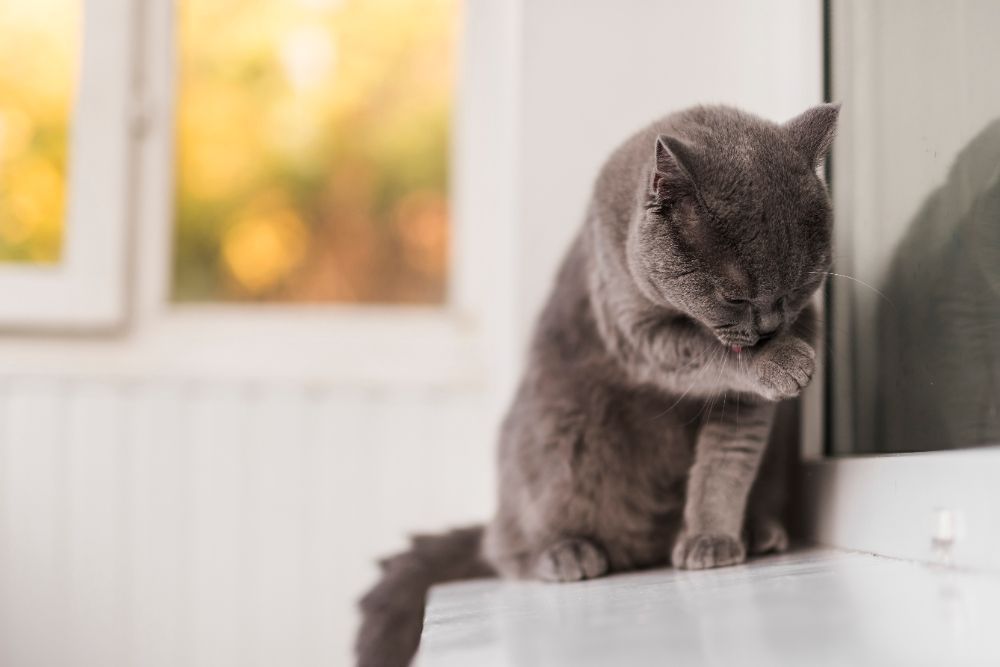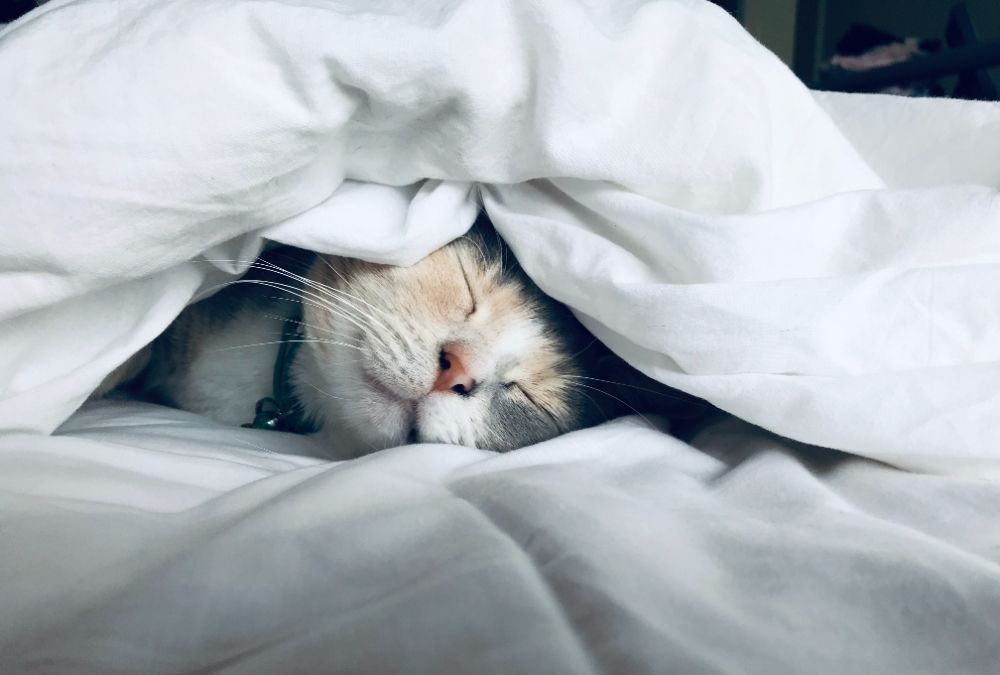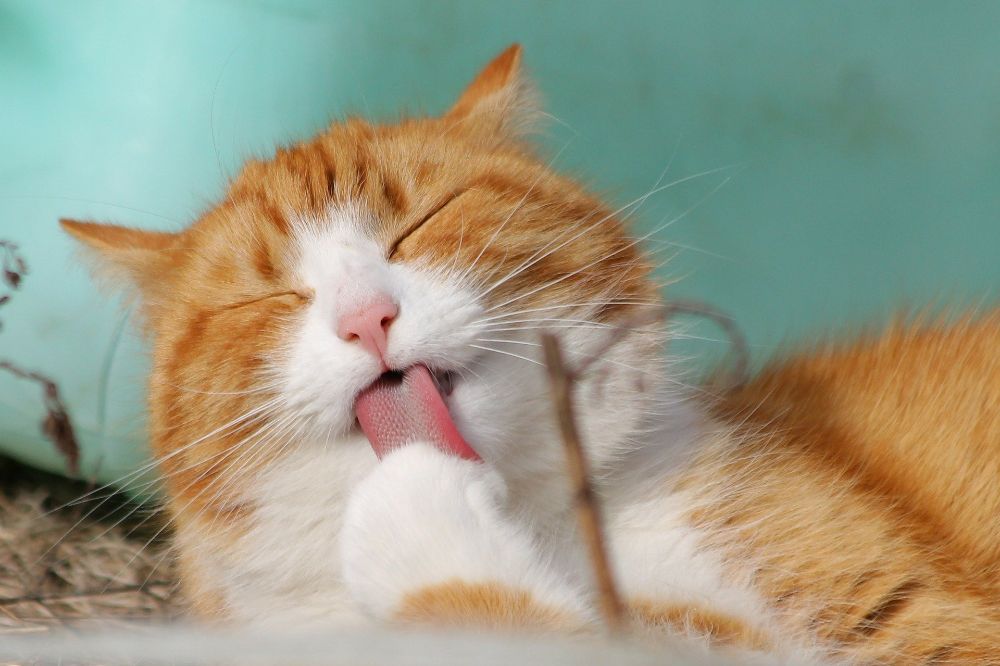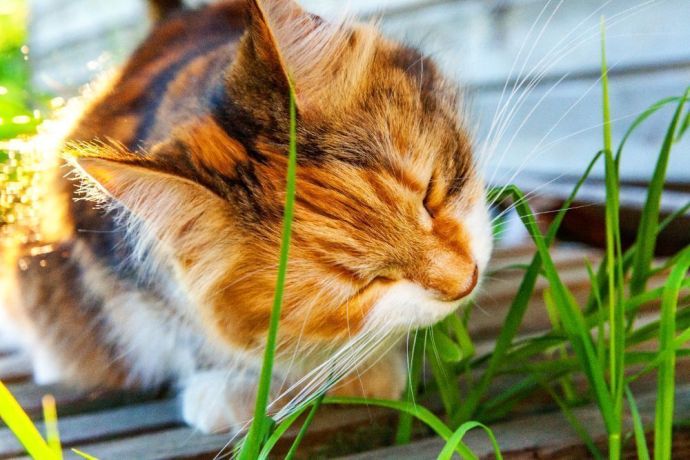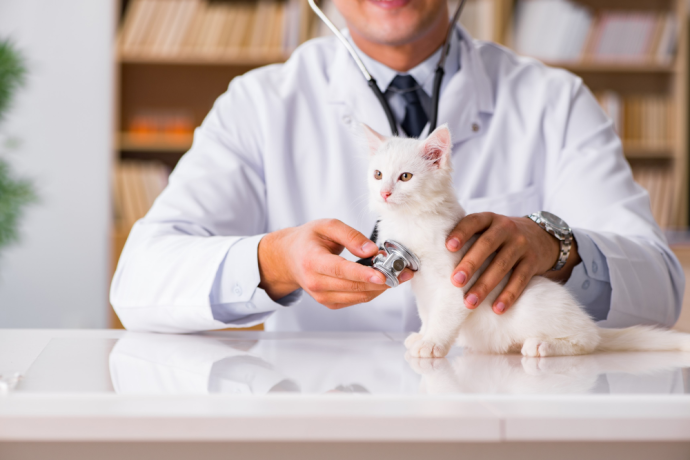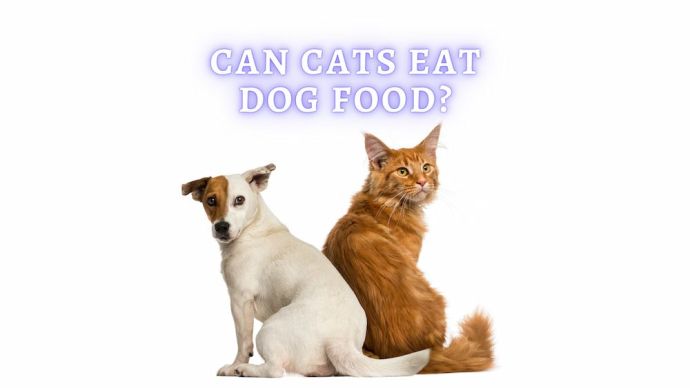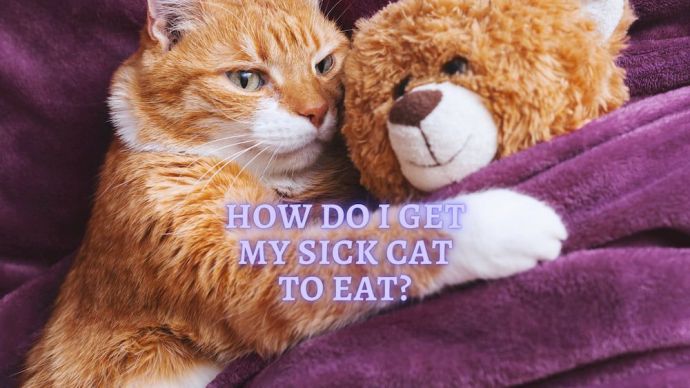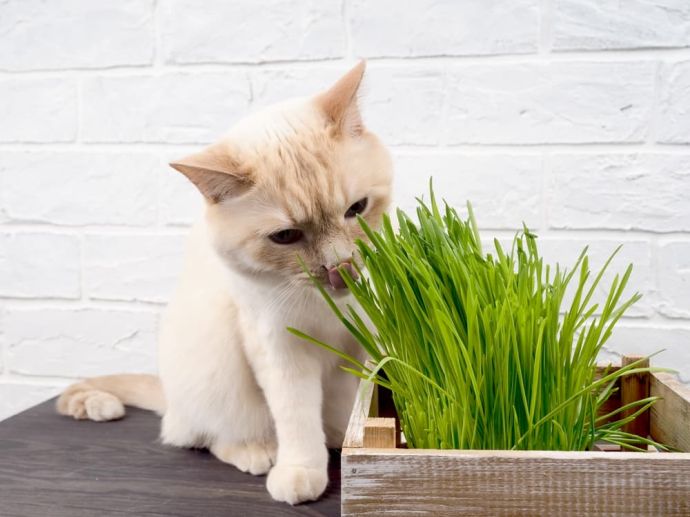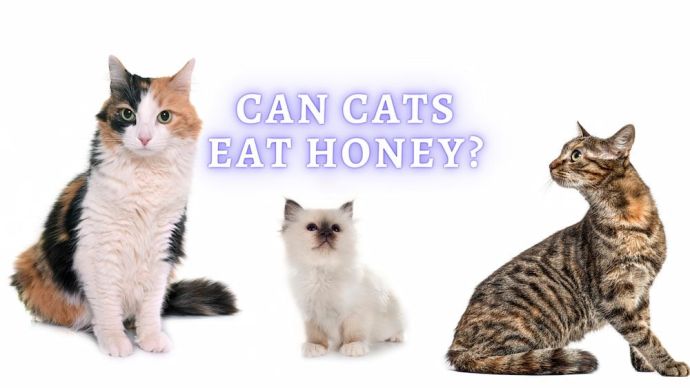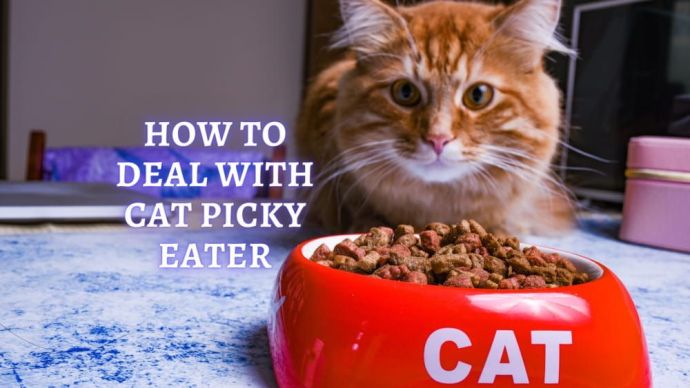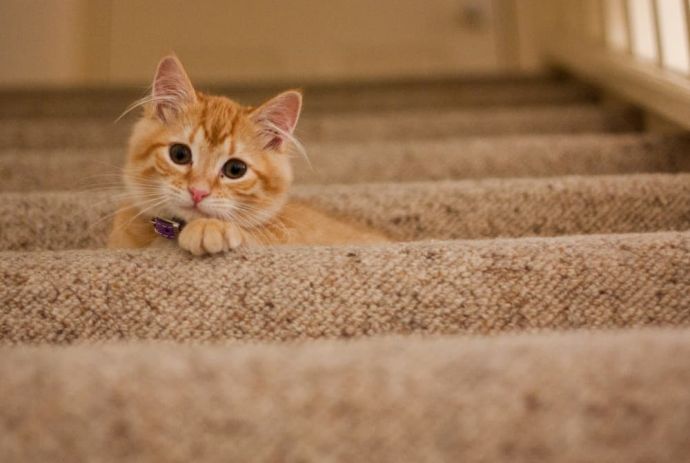Are Probiotics Good For Cats?
Written by:
Author: Dr. Joanna De Klerk
Dr. Joanna de Klerk is a professional Clinical Veterinarian. Member of the Royal College of Veterinary Surgeons UK and a member of the South African Veterinary Association. Graduated with a Master of Science in Tropical Animal Medicine in 2018. Professional author, she has been writing in scientific journals, and also several book series. Joanna loves to enjoy time with her young daughter and family in her free time.
View all 10 articlesLearn about our editorial process and veterinary review board.
Viewed: 432
Updated on: 06/15/2023
What are Probiotics?
Probiotics are popular health supplements, which can be taken daily by humans and animals alike. Probiotics are live microorganisms that, when administered correctly, help improve your cat’s health. The organisms which make up probiotics are friendly bacteria. A healthy gut is lined with friendly bacteria, known as flora, which helps the body digest food and provides excellent immune defense. Boosting the composition of this flora can have many benefits for your cat.
What do Probiotics do?
Probiotics are excellent at maintaining normal gut health. When your cat has a digestive upset, such as diarrhea, vomiting, or a poor appetite, health supplements can help resolve the issue and bring your cat back to full health. Disorders that can cause these symptoms include inflammatory bowel disease, eating something rotten, digestive tract infections and even the use of certain drugs. Cats also love to groom themselves, which means they are constantly ingesting things from their environment, which have ended up on their coat and may not be good for them.
When the body has a digestive upset, particularly an infection, pathogenic (harmful) bacteria overgrow the normal gut flora. These bad bacteria produce more methane gas, causing your cat to feel gassy and uncomfortable. They can also cause an immune reaction in the lining of the guts, resulting in it becoming inflamed, leading to a reduction in the ability to appropriately absorb nutrients into the bloodstream. Probiotics can help to restore normal function to the guts and outcompete the bad bacteria causing the problem.
Recent research has also discovered another function for health supplements; they improve the general immune system too. The mechanism by which they do this is still not fully known. However, it has been proposed that probiotics increase the effect of white blood cells in the immune system, known as lymphocytes and natural killer cells. This is particularly good news for cats who suffer from feline immunodeficiency virus (FIV) or feline herpesvirus (FHV), as these viruses remain latent in the system and flare up when the immune system is under stress. The addition of health supplements to a daily diet will help to reduce the number of flare-ups.
Can I give Probiotics to my Cat?
Any cat can receive probiotics. Unlike most supplements and drugs on the market, there are no contraindications for health supplements. They can only do good, and cannot cause harm, as long as you choose a reputable brand of health supplements designed for use in cats.
It is important to give your cat, cat-specific health supplements. Cats have different digestive systems to other animals, and therefore probiotics formulated for dogs or other pets will not be effective. Cats have shorter small intestines than dogs, and therefore a quicker transit time for food. They also have a different structure to their stomach lining and a smaller cecum.
Like you should not give health supplements designed for other animals, you should also not give human health supplements to cats. Not only might they not work, but they could be dangerous for your cat.
You can choose from various forms for your cat, such as pills, treats, powders, and even diets with health supplements added to best suit your cat.
Will probiotics help with my Cat’s Diarrhea?
Probiotics will help to clear up several different types of diarrhea which your cat may be struggling with:
- Acute or chronic diarrhea: This type of diarrhea is usually caused by bacterial, viral or parasitic infections that could have been picked up from other cats or from eating something rotten. Probiotics help to fight the bad bacterial overgrowth, which afflicts the digestive system at these times.
- Antibiotic diarrhea: This type of diarrhea is not infectious. Antibiotics are designed to kill off bacteria, but unfortunately, they also kill off the good bacterial flora in the gut. Probiotics will replace the flora to avoid bad bacteria taking advantage of the lack of it.
- Inflammatory bowel disease (IBD): IBD is an auto-immune disease, where the digestive tract becomes inflamed because it is reacting to the proteins in the food. Since the lining of the digestive tract is not in good health, less water and nutrients are absorbed, resulting in runny or loose stools and weight loss. Probiotics help to regulate the immune system and reduce the effects of IBD.
How long do probiotics take to work for Cats?
Probiotics start to work immediately. Unlike other health supplements that require a loading dose or several weeks to reach their therapeutic levels, health supplements are immediately available and active in the digestive system.
They do, however, require daily administration to work effectively. Since probiotics are living microorganisms, they do not live forever, and therefore need daily dosing to maintain all their benefits.
How do I know which probiotic to buy?
There are so many probiotics on the market that it can seem overwhelming when choosing one to buy. But here are some tips to help you lookout for the best product:
- The type of probiotic used: There are many different types of products on the market with many different types or strains of health supplements in them. Some will just have one probiotic, whereas some will have multiple different types or strains of probiotics. It may seem that the more types or strains of probiotics in the product, the better. However, that is not necessarily true. Some health supplements work with contradicting methods of action, and therefore having one reputable probiotic will prevent two or more health supplements from canceling out their benefits from each other. Enterococcus faecium, particularly strain SF-68, has a significant amount of research backing its benefits, and therefore a good one to look out for.
- The research: All products on the market should have had some research performed to back their claims. If the company cannot provide solid, scientific research which they have performed with their specific product, it is not likely to be reputable. This research should ideally have been independently conducted to ensure there is no bias affecting the results, but any research is better than a product with no research backing its claims.
- The dosage: It is common to think that the higher the colony-forming unit (CFU), the better the probiotic will work. But actually, different types and strains of health supplements work at different dosages, so this figure is irrelevant. Instead, check what the physical dose of the product is, as not all probiotics are very palatable, so it will be difficult to get a large spoon of tasteless powder into your cat daily!
- The other ingredients: Some probiotic products also have prebiotics added to them. Prebiotics help improves the effects of health supplements. They work similarly to fertilizers. Therefore, products with additional prebiotics are likely to work the best.
Conclusion
Probiotics are not just for unhealthy cats. Instead, they are excellent health supplements that can be given to any cat, any time. However, these are the best scenarios to consider giving your cat health supplements:
- when changing diets or weaning;
- after vaccination;
- at stressful times, such as changing homes, staying in catteries, and traveling;
- before, during and after taking antibiotics;
- if your cat has eaten inappropriate food, such as a dead mouse;
- digestive upsets, vomiting or diarrhea;
- senior cats who may have a weaker immune system;
- cats suffering from chronic infections such as FIV and FHV.
In the end, any scenario where the digestive tract is not in optimal health, or the immune system needs to be boosted, are excellent times to consider probiotics, and your cat will be grateful for improving their health.
 Cat Care Why Does My Cat Attack My Legs? 10 Reasons Why and What To Do About It (Vet-Approved Advice)
Cat Care Why Does My Cat Attack My Legs? 10 Reasons Why and What To Do About It (Vet-Approved Advice) - 46013
- 21
 Cat Veterinary Tips Cat Stomach Gurgling: Vet Advice on Why is Your Cat Stomach Gurgling?
Cat Veterinary Tips Cat Stomach Gurgling: Vet Advice on Why is Your Cat Stomach Gurgling? - 36469
- 4
 Cat Veterinary Tips My Cat Lost its Voice: Can Cats get Laryngitis? (Vet Advice)
Cat Veterinary Tips My Cat Lost its Voice: Can Cats get Laryngitis? (Vet Advice) - 23554
- 13









